The closing scene of E.Nesbit’s Railway Children always chokes me. “Oh my Daddy, my Daddy!” cries Roberta as her father- who has been in prison (falsely accused of spying for the Germans)- steps down to the station platform.
I used to experience something close to that intense joy whenever my favourite uncle or aunt appeared on the other side of the wire mesh door: hot, weary, dusty from a long journey that had started maybe two days back in a far off mountain or other remote outpost.
There was my Auntie Savitri, or Diji as we all called her, my mother’s older sister. She was taller than my mother, with a beautiful oval face, fine features, grey-blue eyes and long dark brown hair. We had a family joke about Alexander the Great who had marched as far south during his conquest of Northern India as Mirpur, where my family originated. Diji’s younger siblings adored her and she visited our family once or twice a year. She arrived with a “bistar-bund”, a form of sleeping bag which was essential travelling gear on train journeys. It was made up of a thin mattress, a sheet, Dhariwal woollen blankets and a pillow stuffed with carded cotton, the bundle rolled up inside khaki coloured canvas and secured with straps and with the owner’s name stencilled on it. Incidentally, all mattresses and pillows in our house were emptied of stuffing every year and the cotton was carded on a tall harp-like contraption carried by the carder, who sat in the garden plucking his humming cord, sending tiny bits of white fluff floating into the air.

Auntie Savitri “Diji” at 31 or 32, outside my grandfather’s house in Gurdaspur. The 8 month old baby is me.
From her securely strapped leather suitcase Diji produced a Dalda tin packed with with walnut fudge. She made it with thick buffalo milk and walnuts from her Kashmir garden. There may have been a jar of pickles or jam as well as a bag of almonds and sultanas, or kishmish, from Afghanistan. When she stayed with us, sometimes for a whole month, she would visit all the Delhi relatives, one by one, but the fudge was for us alone.
In the evening we gathered round her and asked for our favourite stories. She simply exuded love and was both comforting and entertaining. She knew all the family anecdotes and who was married to who. Even though she was kindness itself, she could be acerbic. “Those girls,” referring to two of her nieces, “will not lift a finger to help my sister, but they must have the latest sandals and the latest fashions.” And she would reminisce about our maternal grandparents whom we had hardly known. “Your grandfather, Bauji” she told us, “had a favourite armchair in which he sat to smoke his hookah in the evening after returning home from Court.” Diwan Sant Ram practised as a barrister specialising in criminal law. He had trained at the Inner Temple around the same time as Gandhiji and had been presented to Queen Victoria, as a novelty- the first state subject from Jammu and Kashmir who wore his national costume in front of the Empress of India. “He loved his toast and boiled eggs for breakfast and he always gave the first piece to your grandmother, Bebeji.” 
In my introduction to Rich or Poor, my book of traditional stories from India, I wrote this about Diji:
She had a talent of drawing us (children) into a charmed circle. ” Come closer” she would say as we sat by an open fire in the evenings (Delhi has cold winters too and we were lucky enough to have the perfect setting for listening to stories: a fireplace).
“The one about the parrot.”
“No an Akbar and Birbal story”

Savitri, Diji, with my mother and Priya in 1976 outside our Defence Colony house
“can you tell us a really scary one?” Or we would ask for stories about the god Krishna when he was a little boy, or one of the many tales of heroism and sacrifice from the Ramayana or Mahabharata. My aunt always took her time to decide. She would crack a few nuts, thoughtfully rub the kernels free of shell, clap her hands and shake out her shawl to free them from debris, clear her throat and begin: “A very long time ago…”
When she was 16, my uncle Jagmohan, who was at Emanuel College Cambridge, somehow wangled a place for her at Newnham, but there was no question of her going there. She was married at 18 and had three wonderful sons, who all went into the Armed Forces (the youngest became Admiral Arun Prakash, Naval Chief).
The eldest, Major General Rajendra Prakash, was only a little younger than my beloved Uncle Kuli, Krishan Mohan Ram, who joined the Indian Air Force and got appointed ADC to the last British Air Marshal, Ivelaw Chapman.

Flight Cadet K.M. Ram in 1948
He was extremely handsome with bags of charm and drove a low-slung green Austin-8 sports car. He would suddenly arrive from some mission and delightedly pinch our cheeks and hug us to him. One day he saw a young woman waiting for a bus and offered her a lift. She refused the first two times but did give in eventually and when he became engaged to the beautiful Miss Sneh Grover I was consumed with jealousy. I remember he read us The Island of Adventure by Enid Blyton, which features Bill Cunningham who flies seaplanes. I think Kuli Uncle told us he had met him once!

Flight Lieutenant Krishan Mohan Ram and his fiancee Sneh Grover, 1953
He had a soldier’s brisk stride and an equally brisk way of speaking and our house would buzz with activity and excitement whenever he came to stay. Once they were married, the former Miss Sneh Grover (who became our beloved Sneh Auntie) would ensure his uniform (starched khaki in summer, blue worsted in winter) were meticulously laundered or pressed, his black shoes shined and his cap ready to hand before he left for work.
I stayed with them at their various Air Force postings when I was still quite young. The cantonment had a hectic social scene, with dinner dances and theatrical productions and I was roped in to act in a play, I think Charley’s Aunt. Sneh Auntie, still a fairly new bride, loved knitting and concocting dishes for her “Kishi”. There was always a slab of Cadbury’s Fruit and Nut and a pile of Woman and Home and Woman’s Weekly on the coffee table. I remember being fascinated by a column by The Man Who Sees, a column of folksy masculine wisdom written by a man with a picture byline- quizzical eyebrows, pipe and fair-isle pullover.

My mother with her younger brother Kuli Uncle (Air Vice-Marshal K.M. Ram) in our Delhi house (circa 1984?)
We knew my uncle and aunts really loved us, because they always played with us, told us stories and gave us the warmest hugs. I miss them terribly now that they are gone.













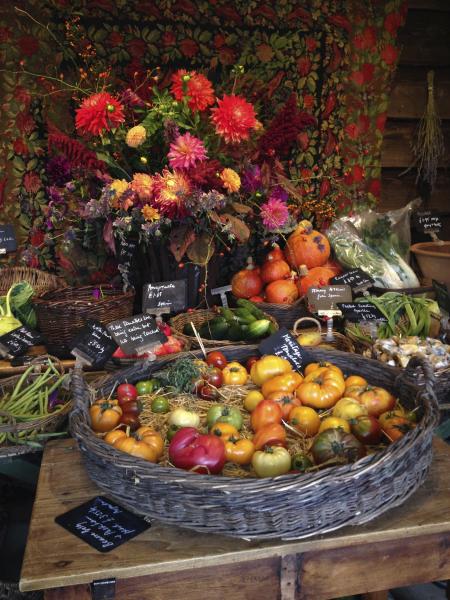
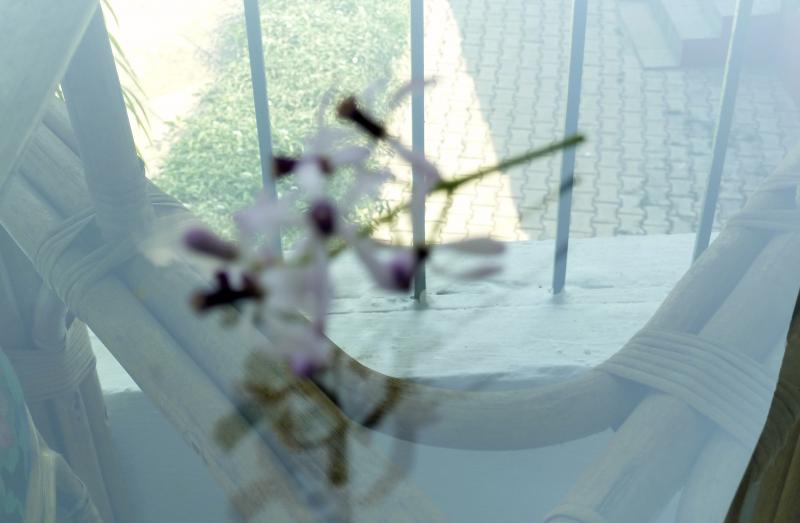
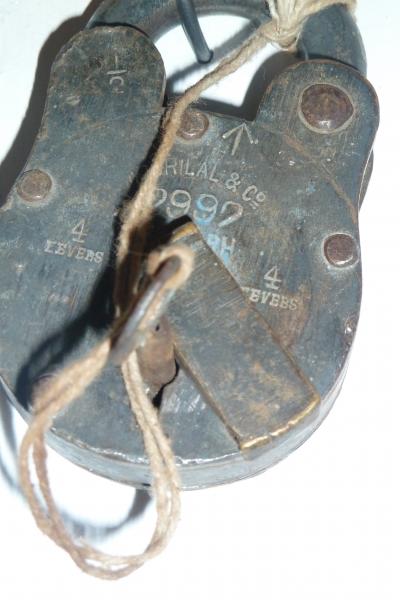
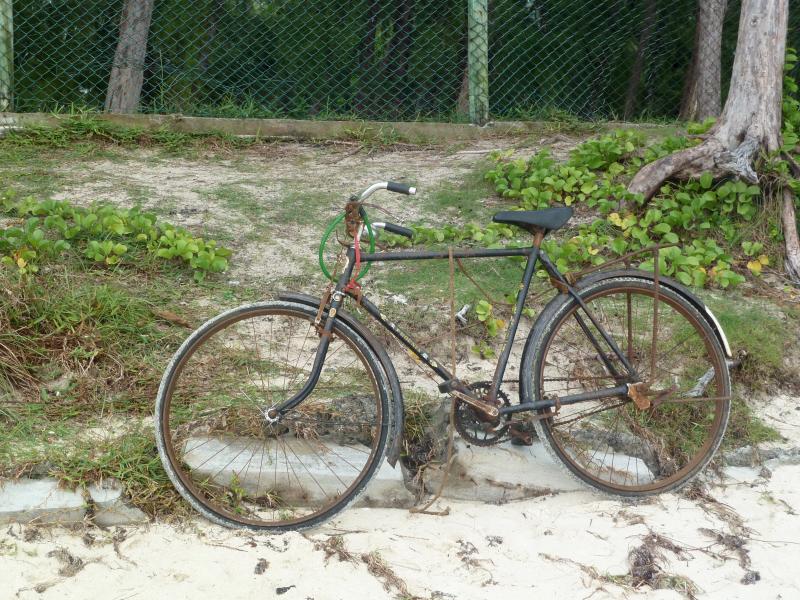
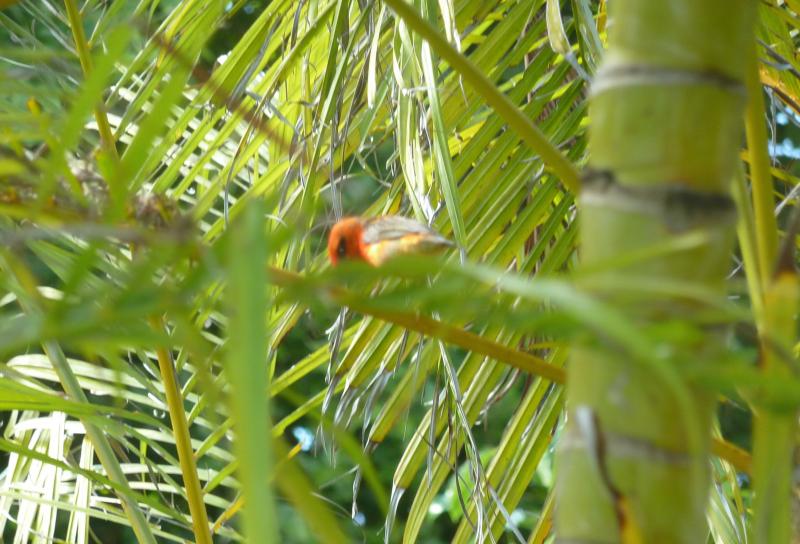
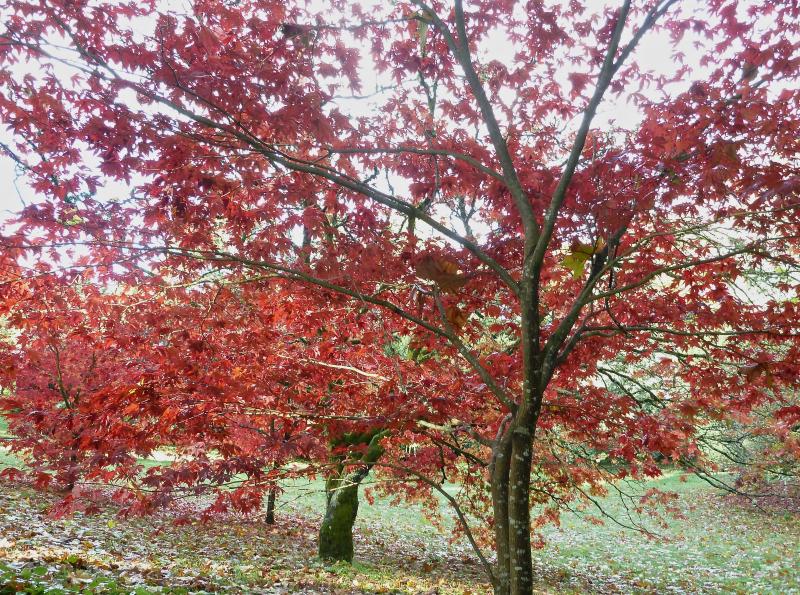
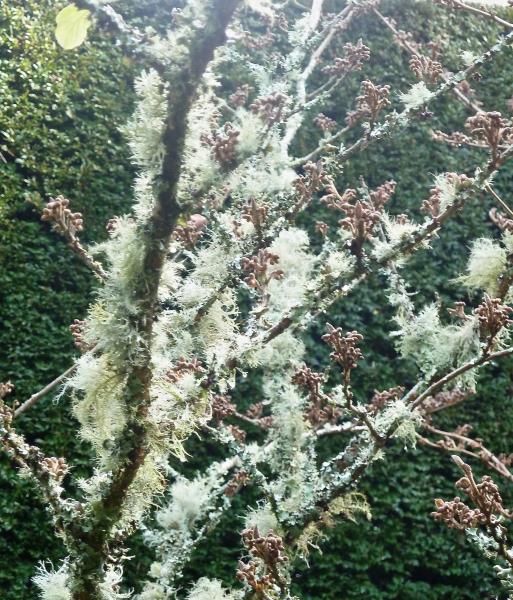


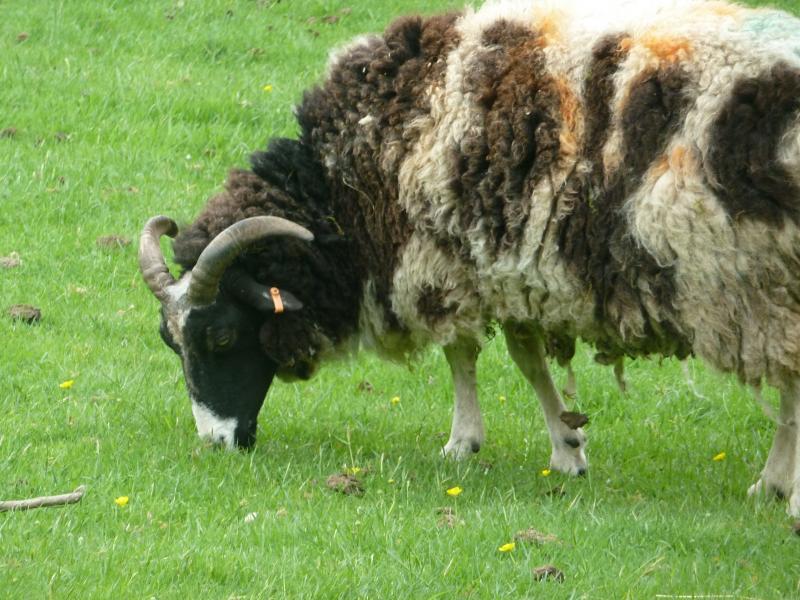
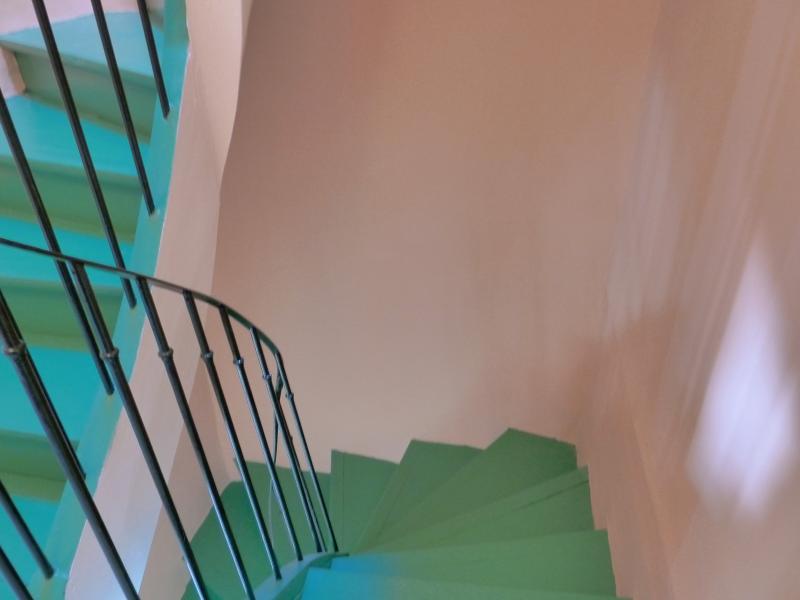

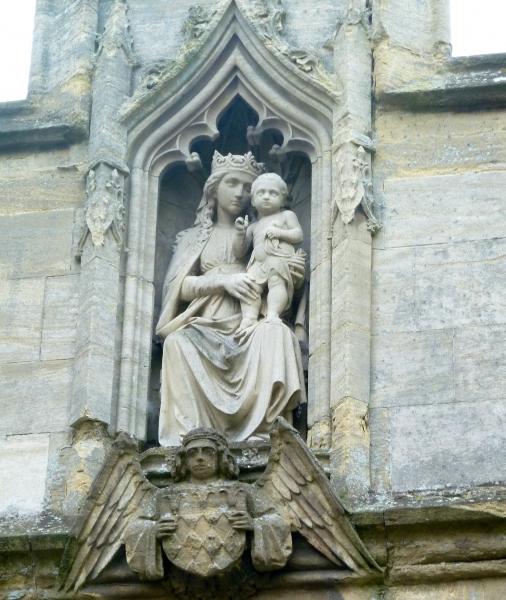

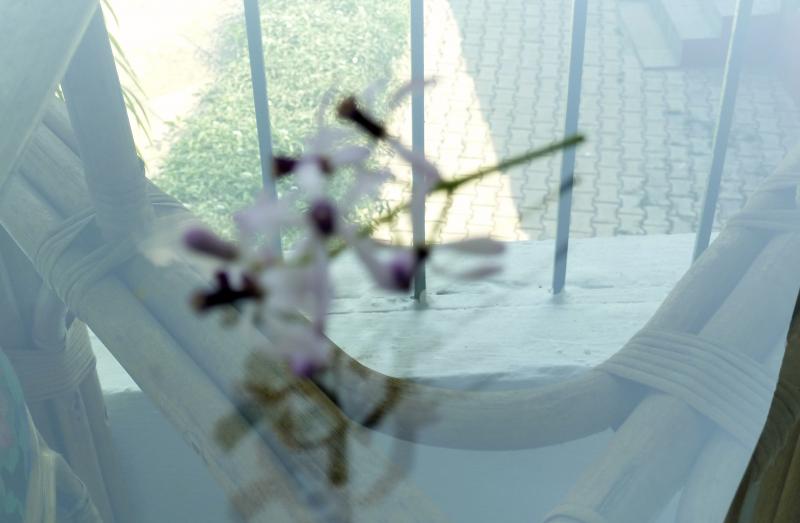
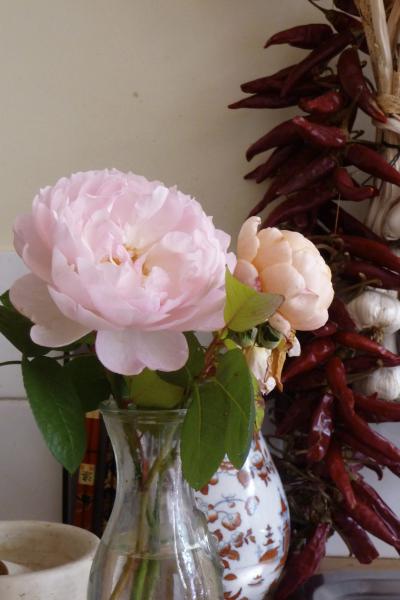

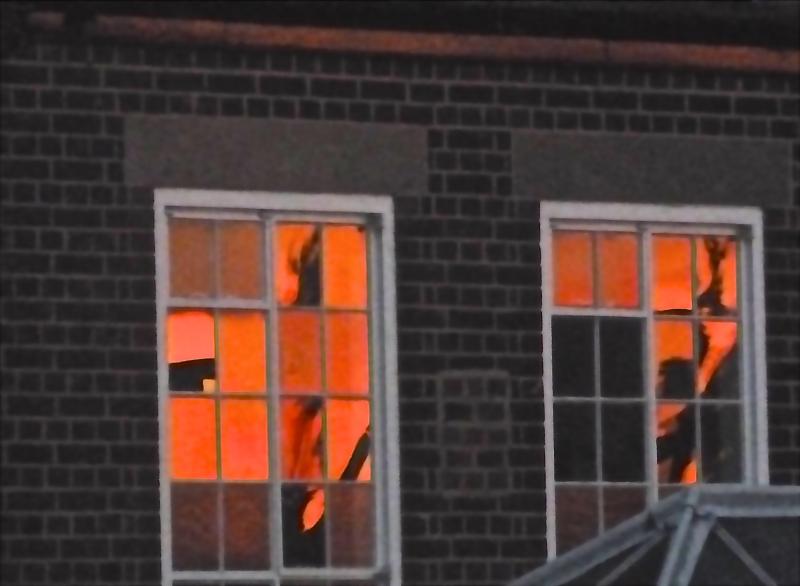
Pratima, thanks; very nicely done!
You’ve created some evocative imagery harking back to our childhood days (60 years into antiquity). Brought alive many happy memories of Kuli Uncle & my mother.
Btw a ‘bistar-bund’, or hold-all’ was essential standard kit for any traveler contemplating an overnight train journey in those days – and of course for all military personnel in India.
A couple of minor niggles: Kuli Uncle’s picture is of a ‘Flight Cadet’; you can see he hasn’t got his pilot’s brevet yet. And his car was a green Austin-8 (I think).
I hope, one day, you will get down into the weeds and write about how a 12-13 year-old sister, used to terrify her two kid brothers (and I) with stories of ghosts & demons……..
Thanks for the points. Am writing my memoirs and you will be in there!
I visited your netsite with much emotion; just writing about our stays in India in 2004, we met you in Agonda!
My wife Marie-France died in august 2018 after many tours in the South of India, each time spending 8/10 weeks to visit Tamil Nadu, Kerala…and going back to Agonda for a rest. My eldest son Manuel worked 2 years in Goa with Siemens and lives now in Canada.
Kind regards
Bernard Paulien
Dear Bernard
I am so sorry to hear about Marie-France and happy that you have written.
I am in Oxford and would like to share some more thoughts with you. I last went to Agonda in 2008 and believe it is much changed from the paradise we knew. I also lived in the Pyrenees and left in 2012. Do let me know how we can have a longer conversation.
It is a pleasure to read this. Takes us all back to a different era. I happen to be the son of a Air Force officer too. I am also am amateur historian of sorts and would request your kind help to complete the profile of AVM KM Ram here – http://www.bharat-rakshak.com/IAF/Database/3101 . Look forward to hearing back
Dear Anchit thank you- what an unexpected pleasure! My email is pratima_mitchell@hotmail.com
I can put you in touch with his children, Poornima and Sanjeev, who will be of even greater help.
I have asked his daughter to fill in his details. If you like I can forward her email to you
Anchit – AVM Ram’s daughter would like your name and email.
a great pleasure to see your reappearance, remember our meeting in Goa: we kept returning to Goa each year and visiting south India until Marie-France’s decease in 2018. I have retired in a small village, Bedoin, in the south of France.
My eldest son, Manuel, worked a few years in a branch of Siemens in Goa and is living with family in Toronto.
Best regards
Bernard Paulien
Hello Bernard so nice to hear from you again. Did I tell you I lived 4 years in the Pyrenees near Perpignan until 2012? Now back in Oxford where we first moved to in the 70s. Do keep in touch.